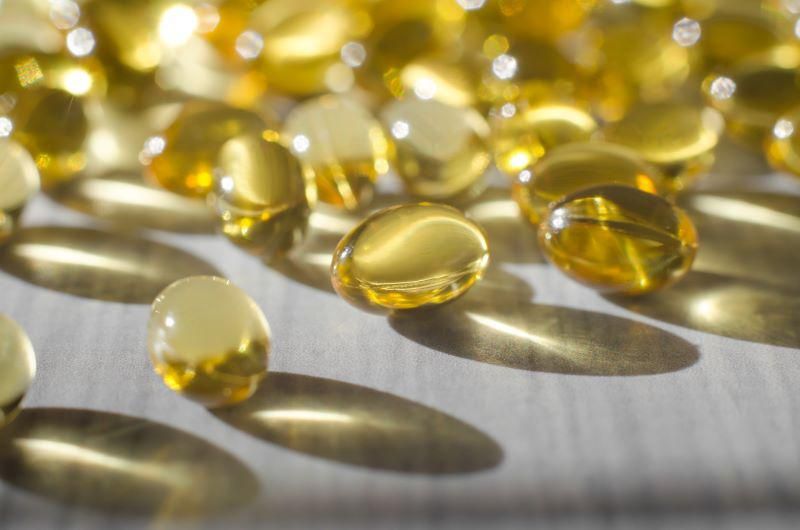
A new study hints that treating low vitamin D levels with supplements might have a critical benefit for certain people: a decreased risk of attempting suicide.
In a study of more than 1 million U.S. veterans, researchers found that those prescribed vitamin D were nearly 50% less likely to attempt suicide over eight years, versus those who were not prescribed the supplements.
The benefit was seen specifically among veterans who had low vitamin D levels to begin with, as well as Black veterans — who may be at greater risk of insufficient vitamin D stores.
Experts stressed that the study was not a clinical trial that directly tested vitamin D for reducing suicidal behavior. So it does not prove that supplements, per se, actually cause suicide risk to fall.
At the same time, it’s known that vitamin D deficiency can cause depression-like symptoms, including mood changes and chronic fatigue, said Dr. Christine Crawford, a psychiatrist and associate medical director of the National Alliance on Mental Illness.
Crawford, who was not involved in the study, said that in her practice, she often has patients with depression symptoms tested for blood levels of vitamin D, as well as vitamin B12, folic acid and thyroid hormones. (Deficiencies in those vitamins, or thyroid hormone disturbances, can also cause depressive symptoms.)
“I think that medical evaluation is so important,” Crawford said.
If a nutrient deficiency is caught, she noted, the solution is straightforward.
Crawford said that in her experience, detecting and treating a vitamin D deficiency can make a big difference.
“Within a few months, patients can have a significant improvement in mood and how they’re feeling physically and mentally,” she said.
“I think this is a great study,” Crawford said of the new research, as it suggests the benefits of treating low vitamin D could extend to a lower risk of attempting suicide.
The findings were published Feb. 1 in the journal PLOS ONE.
In the study, researchers Jill Lavigne and Jason Gibbons found just over 660,000 patients who were prescribed vitamin D between 2010 and 2018 for various reasons. Around half had a vitamin D deficiency.
The researchers compared those veterans against the same number of vets who were not prescribed vitamin D, but were otherwise similar — in terms of age, sex, race, and physical and mental health diagnoses.
Vitamin D supplements contain either of two forms of the vitamin: D2 (ergocalciferol) or D3 (cholecalciferol). Most of the veterans on supplements were taking vitamin D3. In that group, 0.2% were treated for attempted suicide or self-harm during the study period. That compared with 0.36% of veterans not prescribed vitamin D.
There was a similar pattern among veterans prescribed vitamin D2: The rate was 0.27% who attempted suicide or otherwise harmed themselves, versus 0.52% of veterans without vitamin D prescriptions.
When the researchers weighed other factors, like physical and mental health conditions, vitamin D supplementation was still linked to a 45% to 48% lower risk of attempting suicide.
And it turned out that the association was strongest among veterans who had low vitamin D to start (blood levels lower than 20 ng/mL), and among Black veterans.
The body naturally synthesizes vitamin D when the skin is exposed to sunlight. But darker skin, with more melanin, results in less vitamin D production.
That might be why supplements appeared particularly protective among Black veterans, according to Lavigne, of the VA’s Center of Excellence for Suicide Prevention in Canandaigua, N.Y.
She and Gibbons, a researcher at Johns Hopkins Bloomberg School of Public Health, both stressed that this type of study does not prove cause-and-effect.
However, Gibbons voiced support for the approach that Crawford and other health professionals already take: evaluating patients with depression symptoms for low vitamin D.
Vitamin D is easy enough for people to get on their own. But Lavigne cautioned that the vitamin is stored in body fat, and it’s possible to overdo it with supplements.
Plus, Crawford said, talking to your doctor about your symptoms, and possibly getting tested for other nutritional or thyroid issues, is important. It’s also critical that people get any additional help they need — including talk therapy or medication, she said.
“No one is saying that vitamin D will eliminate all thoughts of suicide,” Crawford stressed. But for some people, she added, it could be a “piece of the puzzle.”
More information
The American Foundation for Suicide Prevention has resources for people at risk.
SOURCES: Jason Gibbons, PhD, postdoctoral fellow, health policy and management, Johns Hopkins Bloomberg School of Public Health, Baltimore; Jill Lavigne, PhD, MPH, U.S. Department of Veterans Affairs, Center of Excellence for Suicide Prevention, Canandaigua, N.Y.; Christine Crawford, MD, MPH, associate medical director, National Alliance on Mental Illness, Arlington, Va., and assistant professor, psychiatry, Boston University School of Medicine, Boston; PLOS ONE, Feb. 1, 2023, online
Source: HealthDay

Leave a Reply